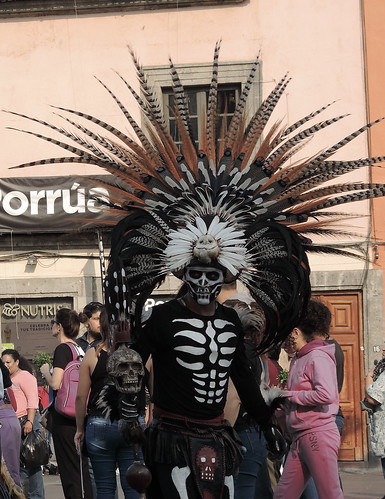Marco temporal: The anti-Indigenous theory that just won’t die
Indigenous #Indigenous

In September, Brazil’s Supreme Court ruled that marco temporal, a legal theory that would have limited Indigenous claims to land and opened those territories to extractive industries like mining and agriculture, was unconstitutional. The marco temporal case spent 16 years moving through the courts.
But following the ruling, Brazilian lawmakers approved legislation that would make marco temporal legal anyway, putting Indigenous lands and communities at risk again.
It’s estimated that Indigenous peoples safeguard nearly 80 percent of the planet’s remaining biodiversity, with the Brazilian rainforest containing almost a quarter of all terrestrial biodiversity and 10 percent of all known species on Earth. However, over the last four years, under former president Jair Bolsonaro’s policies, deforestation in the Amazon rose 56 percent, with an estimated 13,000 square miles of land destroyed by development and an estimated 965 square miles of Indigenous territories lost to extractive industries.
Brazil’s agribusiness sector, which holds significant influence over the country’s conservative Congress, has supported efforts to make marco temporal law, citing economic development as the key reason to adopt the legislation. With passage, the law would mark a specific time for when Indigenous land claims could be accepted: If Indigenous communities weren’t on the land they claimed in 1988 — when the Brazilian constitution was passed — they would have no claims to those lands, opening them up for development.
According to Land Is Life, an international Indigenous rights advocacy group, beyond ignoring the Supreme Court’s ruling, the bill infringes on the rights of Indigenous peoples. Global watchdogs like Cultural Survival, an organization promoting the self-determination of Indigenous peoples, plan to fight for the protection of Indigenous lands.
A coalition of seven Indigenous Brazilian organizations have sent an appeal to the United Nations denouncing violence against Indigenous peoples and warning that the approval of the marco temporal bill could lead to more. They have also urged President Luiz Inácio Lula da Silva to veto the bill.
In the run-up to his election, Lula said he would create a Ministry of Indigenous Affairs headed by an Indigenous person, recognize Indigenous land claims, put a stop to illegal mining on Indigenous territories, and rebuild the National Indian Foundation, or FUNAI.
The bill now awaits Lula’s approval or veto, but even with a veto, lawmakers can override it with a majority vote in each chamber.